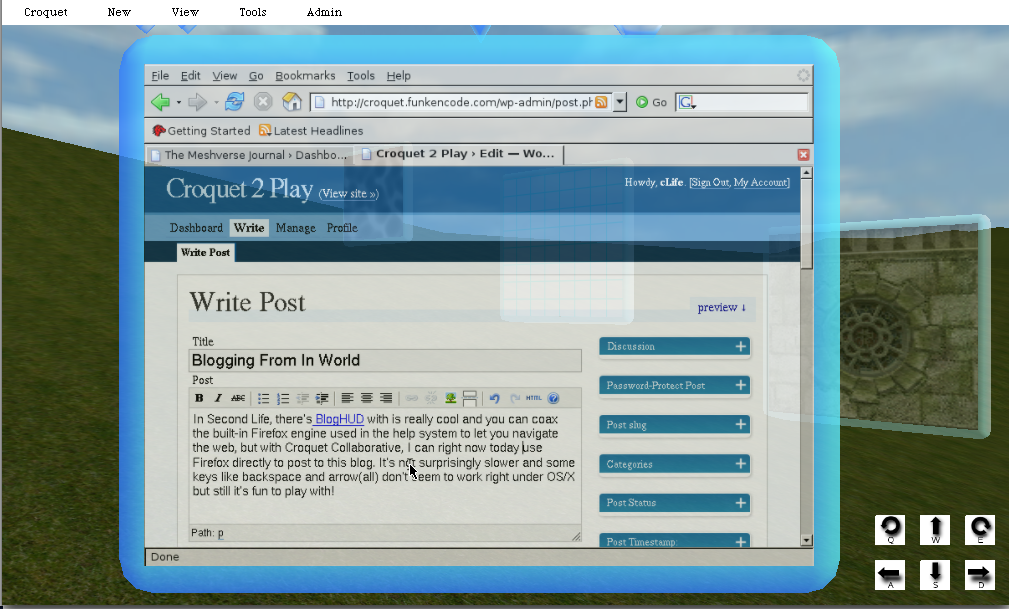One success metric that I’ve been shooting for is that I want a user to do something in Croquet that was not specifically intended by the authors of the space or software. It’s very cool to create something that is ideally suited for a particular usage, but it’s really something to create a meta-tool whose usage exceeds the sum of its designed parts.
This fellow Laurence apparently created his blog entry from within the Collaborative.
I had expected and hoped the first such spontaneous use to be something based on collaboration, or on usability or scalability. This was not. It was done because it was fun to do. That’s pretty cool, actually. Shows what I know…




